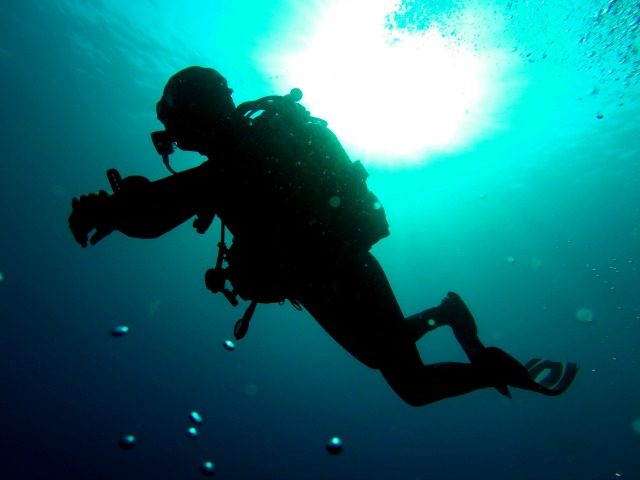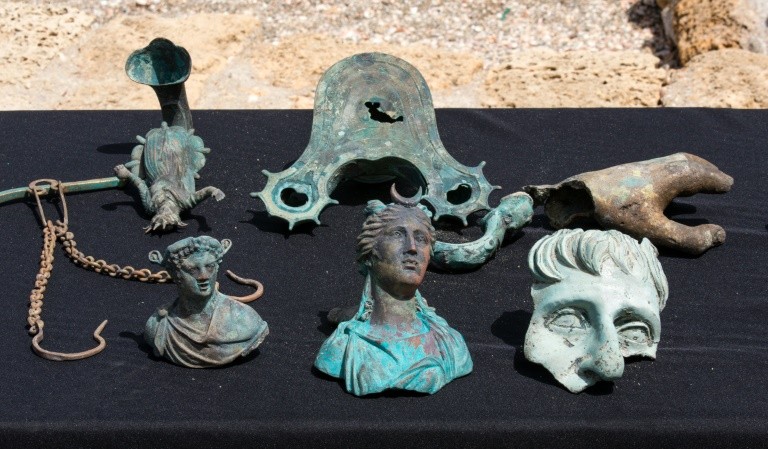CAESAREA (ISRAEL) (AFP) – Israel’s Antiquities Authority on Monday displayed cargo from a merchant ship that sank off the ancient Mediterranean port of Caesarea 1,600 years ago, including rare bronze statues and thousands of coins.
The find, happened upon by two divers a few weeks ago who then alerted the authority, consisted primarily of “metal slated for recycling” borne on the ship from Caesarea in the late Roman period, IAA experts said.
But a storm at the entrance to Caesarea harbour crashed the large ship into the seawall and rocks, the IAA said, spilling the cargo into the sea and preserving the “exciting finds”.
“Metal statues are rare archaeological finds because they were always melted down and recycled in antiquity,” Jacob Sharvit, director of the Marine Archaeology Unit of the IAA and his deputy Dror Planer said in a joint statement, noting such a trove hasn’t been found in Israel for 30 years.
The artefacts include “a bronze lamp depicting the image of the sun god Sol, a figurine of the moon goddess Luna, a lamp in the image of the head of an African slave (and) fragments of three life-size bronze cast statues,” the IAA said. An image of part of the haul appears below.
There were also “objects fashioned in the shape of animals such as a whale (and) a bronze faucet in the form of a wild boar with a swan on its head,” the statement said, noting the sand protected the statues which were “in an amazing state of preservation.”
The find includes thousands of coins in two lumps weighing around 20 kilogrammes (44 pounds) bearing the images of Constantine the Great and of Licinius, an emperor who ruled the eastern half of the Roman Empire and was a rival of Constantine.
Fragments of drinking jars were also found, as well as iron anchors, apparently cast from the ship in the vain hope of preventing it crashing in the storm.
The discovery comes a year after the exposure of a record trove of some 2,000 gold coins in the same area, with Sharvit crediting the abundance of divers with the growing number of finds.
According to Sharvit and Planer, the finds reflect the “economic and commercial stability in the wake of the stability of the Roman Empire,” a period in which “Christianity was on its way to becoming the official religion of the Roman Empire.”


COMMENTS
Please let us know if you're having issues with commenting.